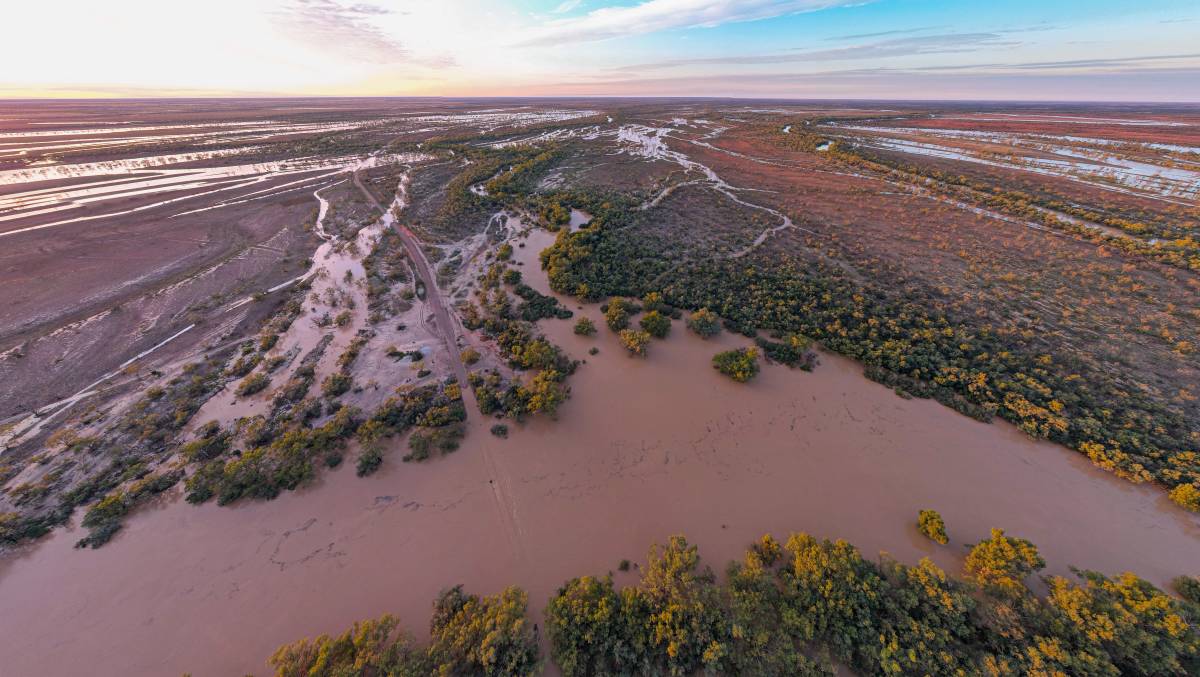First published in Queensland Country Life.
As any Channel Country resident will tell you, the irregular, but spectacular, floods that flow freely across the floodplains are at the heart and soul of this region. Our floodplains are some of the best cattle fattening country in the world. The rivers support wetlands and water holes that provide the oasis for the Outback wildlife that attracts thousands of tourists each year.
20 years ago the people of Cooper’s Creek successfully fought off outside interests who wished to exploit the river for cotton irrigation. However, I fear our biggest challenge to protect the Channel Country is upon us now- with the expansion of the unconventional shale and tight gas fracking industry.
Conventional oil and gas has been operating in the Channel Country since the 1960s. Its peak has come and gone. Recent exploration has been chasing unconventional gas deposits- so called because of the unconventional extraction methods. Drilling for kilometres both vertically and horizontally, unconventional extraction, or fracking, requires tremendous amounts of water and ‘fracking fluids’ made up of sand and chemicals.
This year two expert reports have emerged that have highlighted the serious risks of fracking to the Coper and the other rivers of the Lake Eyre Basin. A federal government report supported by the CSIRO noted that the Cooper Basin has been earmarked as highly prospective for future shale and tight gas fracking fields of between 1,000- 1,500 new wells. The report found that 116 chemicals are currently used for shale and tight gas extraction in Australia and that 33 of these are of ‘potentially high concern’ to the health of water – both ground and surface water. The report also noted the significant wear and tear from the thousands of new truck movements on local roads, in addition to the thousands of new roads, well pads and pipelines that would be built- carving up the landscape and potentially diverting water flows on the floodplain.
A second report by a panel of independent expert scientists- that had been kept secret by the Queensland Government and then leaked to the press earlier this year- determined that these risks were unacceptable on the floodplains of the Channel Country. It recommended that unconventional gas fracking be kept off the floodplains altogether, advice that the Queensland Government has thus far chosen to ignore.
In 1996, the people of the Cooper came together for the river. The Windorah community hosted a scientific workshop that was attended by river ecologists, local graziers and towns people, traditional owners and industry representatives. At the end of the discussions, the attendees unanimously decided to advise the Queensland government to reject irrigation on the Cooper and other rivers of the Channel Country. Shortly afterwards 127 Channel Country residents registered their views with a parade on horseback through Windorah- a political protest which attracted widespread media attention to our need to protect the river and our way of life. The boom and bust cycle is something locals have not just adapted to, we thrive in it. It has become part of our character, our grit, and our identity as Channel Country people. As we look for ways to diversify our economy to get us through those dry years, we need to make careful decisions about what industries we choose to invest in and make sure that any new industry will not be at the expense of existing sustainable industries and the precious Channel Country environment.
The floodplains and the grazing and tourism industries they support, are under threat once again. It’s time, my friends, to rally together once again for the Cooper.
Dr Bob Morrish is a beef cattle grazier who has spent 40 years living and working in the Channel Country. He chaired the Cooper’s Creek Protection Group for 19 years.

